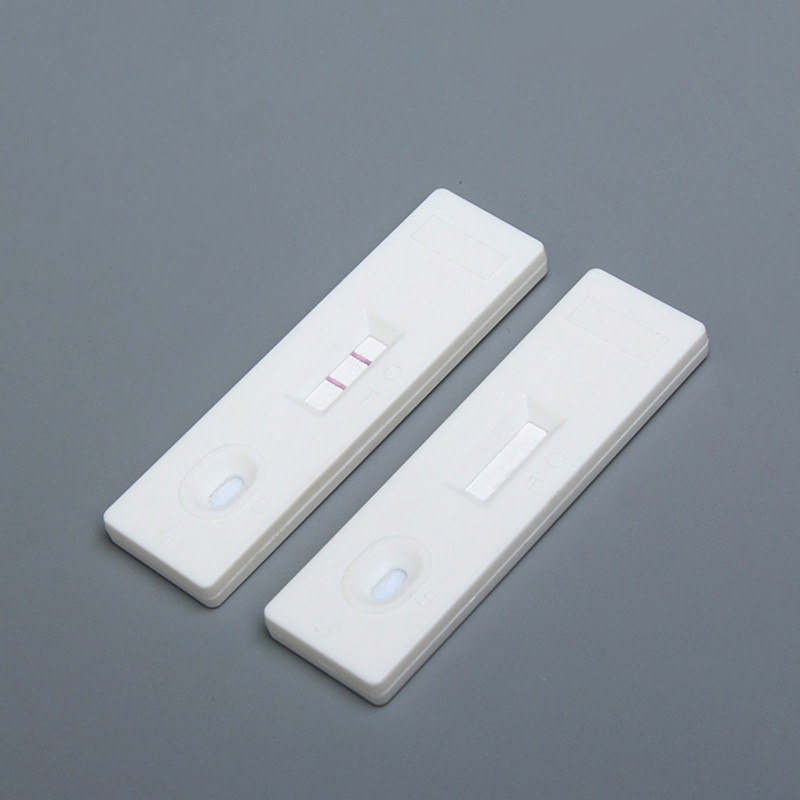Nov . 12, 2024 05:56 Back to list
buy at home test for h pylori
Understanding H. Pylori A Guide to At-Home Testing Kits
Helicobacter pylori, commonly referred to as H. pylori, is a type of bacteria that can infect the stomach, leading to various gastrointestinal issues, including gastritis, ulcers, and even stomach cancer. It is estimated that over half of the world's population may carry this bacterium, often without experiencing any significant symptoms. However, for those who do experience discomfort, it is crucial to identify the presence of H. pylori promptly. One option for diagnosing this infection is through at-home testing kits.
Why Test for H. Pylori at Home?
The convenience of at-home testing kits has revolutionized the way individuals can monitor their health. There are several reasons why one might consider testing for H. pylori from the comfort of their home
1. Convenience At-home tests eliminate the need for a doctor's appointment, reducing the time and effort required to undergo testing. Patients can discreetly collect samples and send them to a lab for analysis.
2. Privacy Testing at home offers a greater level of privacy. Many individuals might feel uncomfortable discussing gastrointestinal issues with a physician, and home testing provides a confidential alternative.
3. Accessibility For those living in remote areas or places with limited access to healthcare, home testing kits can be a vital resource. They ensure that individuals can seek diagnosis and potential treatment without the need for long travel.
Types of At-Home H. Pylori Tests
There are generally three types of tests available for detecting H
. pylori, each with its own methodology1. Breath Tests These are among the most accurate options for detecting H. pylori. The patient drinks a liquid containing a substance that H. pylori can metabolize, producing carbon dioxide. If H. pylori is present, the breath will contain a higher level of this specific carbon dioxide, indicating an infection.
2. Blood Tests These tests look for antibodies against H. pylori in the bloodstream. While they are simple to administer, they may not be as reliable in indicating an active infection, as antibodies can remain even after the infection has cleared.
3. Stool Tests At-home stool tests check for the presence of H. pylori antigens in a sample. Like the breath test, it provides information specific to active infection rather than past exposure.
buy at home test for h pylori

How to Use an At-Home H. Pylori Test
Using an at-home H. pylori test typically involves a few straightforward steps, although these may vary depending on the specific kit
1. Read Instructions Before beginning, carefully read the instructions that come with the testing kit. Each kit may have specific requirements on how to collect samples.
2. Sample Collection For breath tests, you typically need to drink a liquid and then breathe into a collection bag. For blood tests, you may need to use a finger prick device provided in the kit. If it’s a stool test, collect a small sample according to the provided guidelines.
3. Send to Laboratory Most kits will include a prepaid envelope to send your sample to a lab for analysis. Make sure to follow any preservation instructions to ensure accurate results.
4. Wait for Results After sending in your sample, you’ll receive results—usually via email or an online portal—within a specified period.
Interpreting Results and Next Steps
Receiving results from your H. pylori test can be a moment of relief or a cause for concern, depending on the outcome. A positive result indicates the presence of the bacteria, and it’s important to follow up with a healthcare provider for further evaluation and potential treatment options. Treatment typically involves a regimen of antibiotics and medications to reduce stomach acid, helping to eradicate the bacteria and promote healing.
Conversely, a negative result is reassuring but does not completely rule out the possibility of gastrointestinal issues. If symptoms persist, consulting with a healthcare provider is essential for further investigation.
Conclusion
At-home H. pylori testing kits provide a convenient and private option for those seeking to understand their gastrointestinal health. By identifying an H. pylori infection, individuals can take proactive steps towards treatment and recovery. However, understanding and interpreting the results should always be done with the guidance of a healthcare professional to ensure optimal care and management. In a world where health and convenience go hand in hand, at-home testing is an invaluable tool in the battle against H. pylori infections.
-
Dengue NS1 Rapid Diagnostic Test Kit
NewsMar.07,2025
-
Dengue NS1 Rapid Diagnostic Test Kit
NewsMar.07,2025
-
Dengue NS1 Rapid Diagnostic Test Kit
NewsMar.07,2025
-
Transferrin Rapid Test Cassette Tumor Marker TF Card
NewsMar.07,2025
-
Malaria Pf Pan Rapid Diagnostic Test Kit
NewsMar.07,2025
-
malaria pf / pan ag rapid test
NewsMar.07,2025

